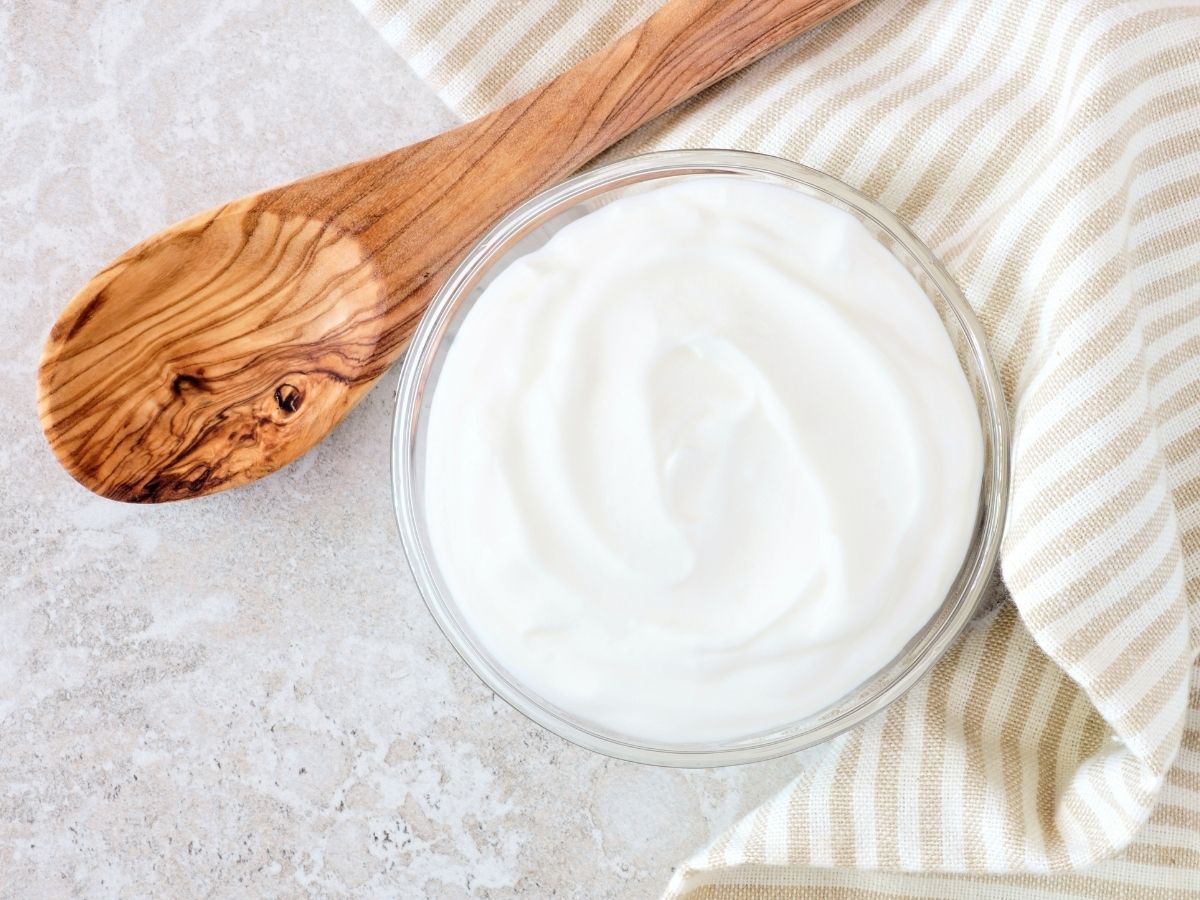
You ran out in the middle of the recipe. You're avoiding dairy. You want to experiment with new ingredients. Whatever the reason is that you're looking for an alternative, I have substitutes for Greek yogurt for you.
Jump to:
- 1. Coconut yogurt
- 2. Silken tofu
- 3. Cashew cream
- 4. Avocado
- 5. Almond milk yogurt
- 6. Soy Yogurt
- 7. Coconut cream
- 8. Sour cream
- 9. Cottage cheese
- 10. Mayonnaise
- 11. Plain yogurt
- 12. Buttermilk
- 13. Mashed banana
- 14. Cream cheese
- 15. Applesauce
- Summary
- Can I use milk instead of greek yogurt?
- How to use Greek yogurt?
- Similar articles
Greek yogurt is a popular ingredient in many healthy recipes, from smoothies to dips to baked goods to breakfast bowls. If you're like me, you're obsessed with its creamy texture, tangy flavor, and high protein content.
However, if you're lactose intolerant, vegan, or simply looking for a change, don't worry. There are plenty of healthy substitutes for Greek yogurt that compare in texture, taste and nutritional value. In this article, I'll share 15 alternatives to Greek yogurt and the best time to use each.
Keep reading for ideas!
1. Coconut yogurt
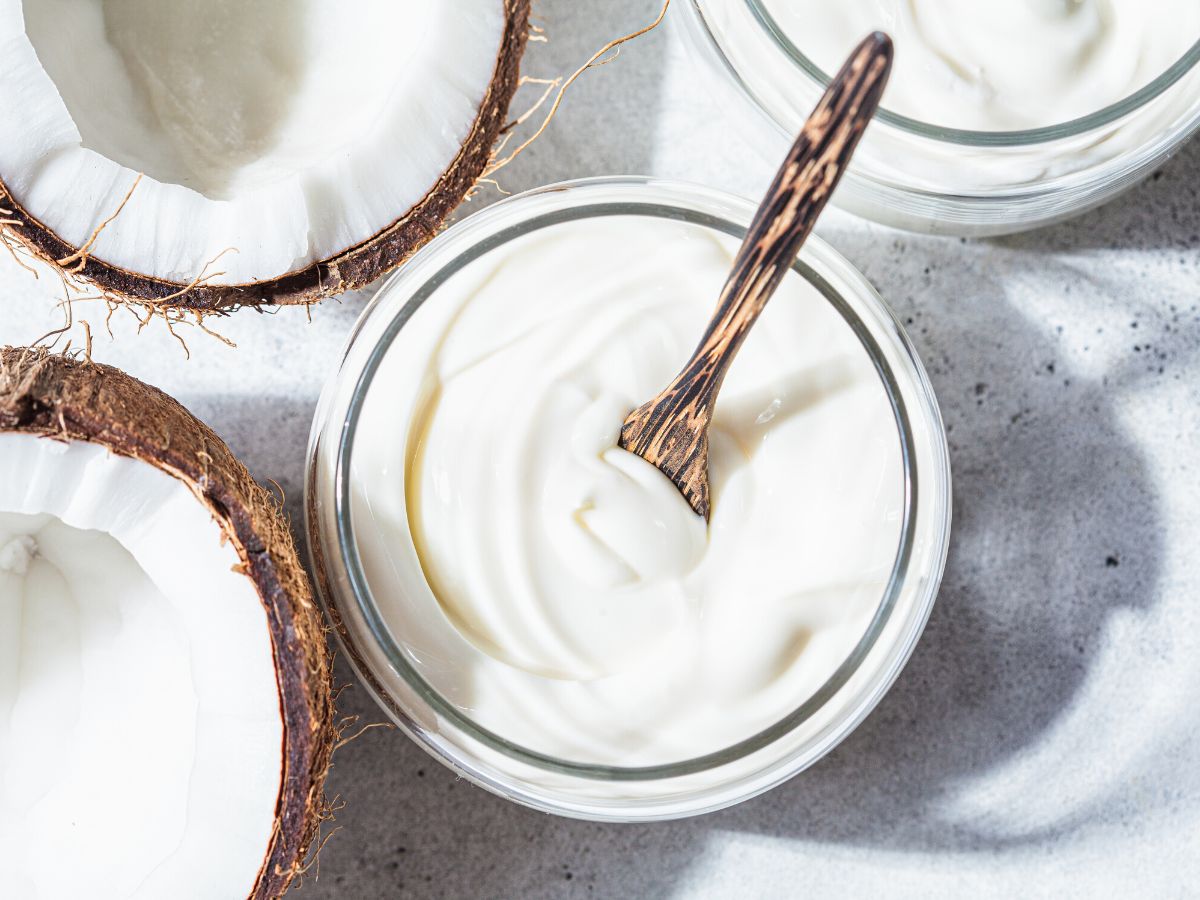
Coconut yogurt can be used as an alternative for yogurt in a 1:1 ratio.
Pros:
- It has a similar tangy flavor to Greek yogurt and is creamy and versatile.
- Coconut yogurt is a great option for those who are lactose intolerant or vegan.
- It contains healthy fats and is lower in calories than Greek yogurt.
- It's a good source of probiotics, which can improve gut health.
Considerations:
- It's best used as a greek yogurt substitute in baking, smoothies, dips and dressings.
- Some coconut yogurts can be high in added sugars, so make sure to choose a brand that is unsweetened or low in sugar if possible.
2. Silken tofu

Silken tofu can be used as an alternative for Greek yogurt in a 1:1 ratio.
Pros:
- It has a smooth texture and mild flavor that makes it a great substitute for Greek yogurt in many recipes.
- It's a great option for those who are lactose intolerant or vegan.
- Silken tofu is high in protein and low in fat, making it a healthy addition to your recipe.
- It's a good source of calcium and iron.
Considerations:
- It's best used as a greek yogurt replacement in smoothies, dressings and dips.
- Some people may not enjoy the taste or texture of tofu in their recipes, so it's important to experiment and find the right proportions and flavors that work for you.
Caitey Jay's top pick:
 Buy Now →
Buy Now → 3. Cashew cream
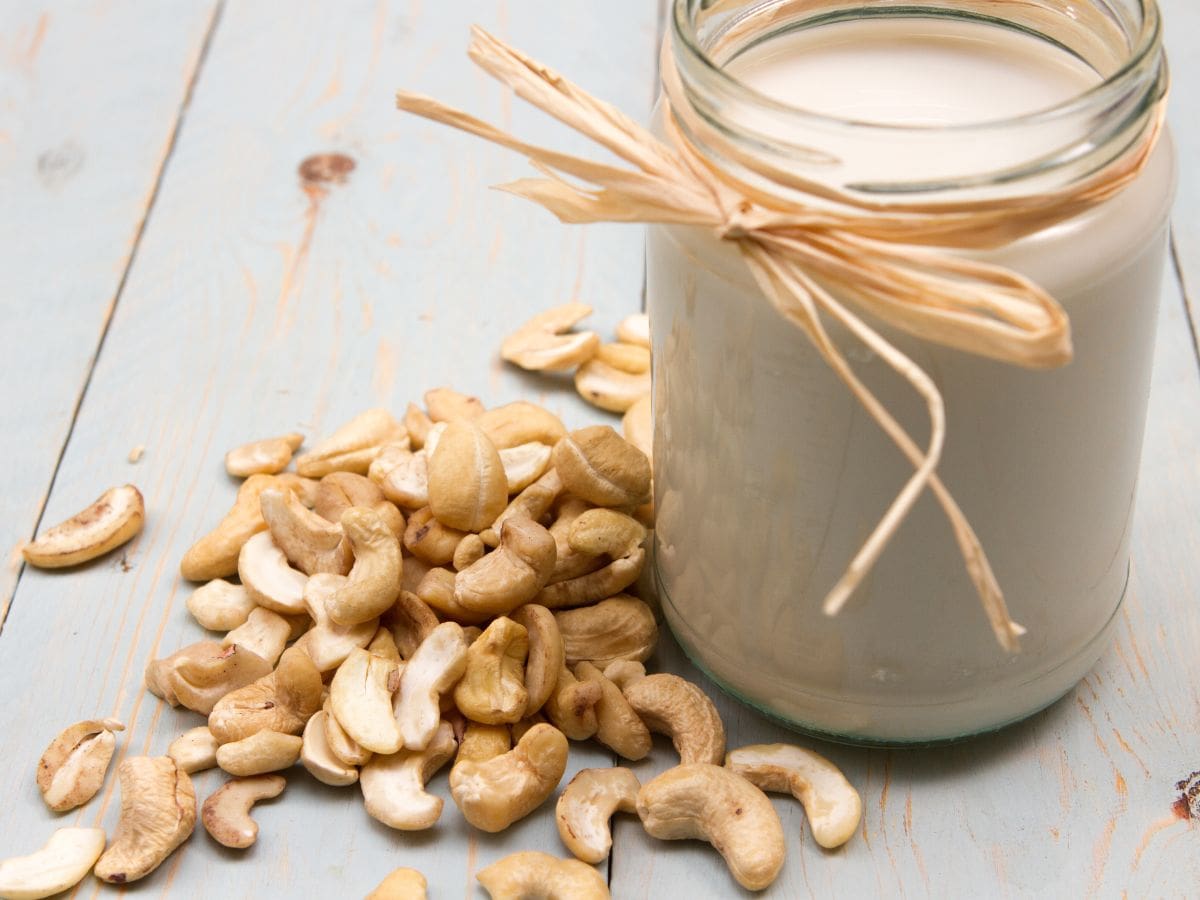
Cashew cream can be used as a replacement for Greek yogurt in a 1:1 ratio.
Pros:
- It has a rich and creamy texture and can add a nutty flavor to your recipe.
- Cashew cream is a good source of healthy fats and protein.
- It's lower in calories than Greek yogurt.
- It's a great option for those who are lactose intolerant or vegan.
Considerations
- It's best used as a greek yogurt alternative in baking and dips.
- Cashews can be expensive, so this may not be the most budget-friendly substitute for everyone.
- Cashew cream may not work as well in recipes that require a tangy flavor, as it has a milder taste compared to Greek yogurt.
4. Avocado
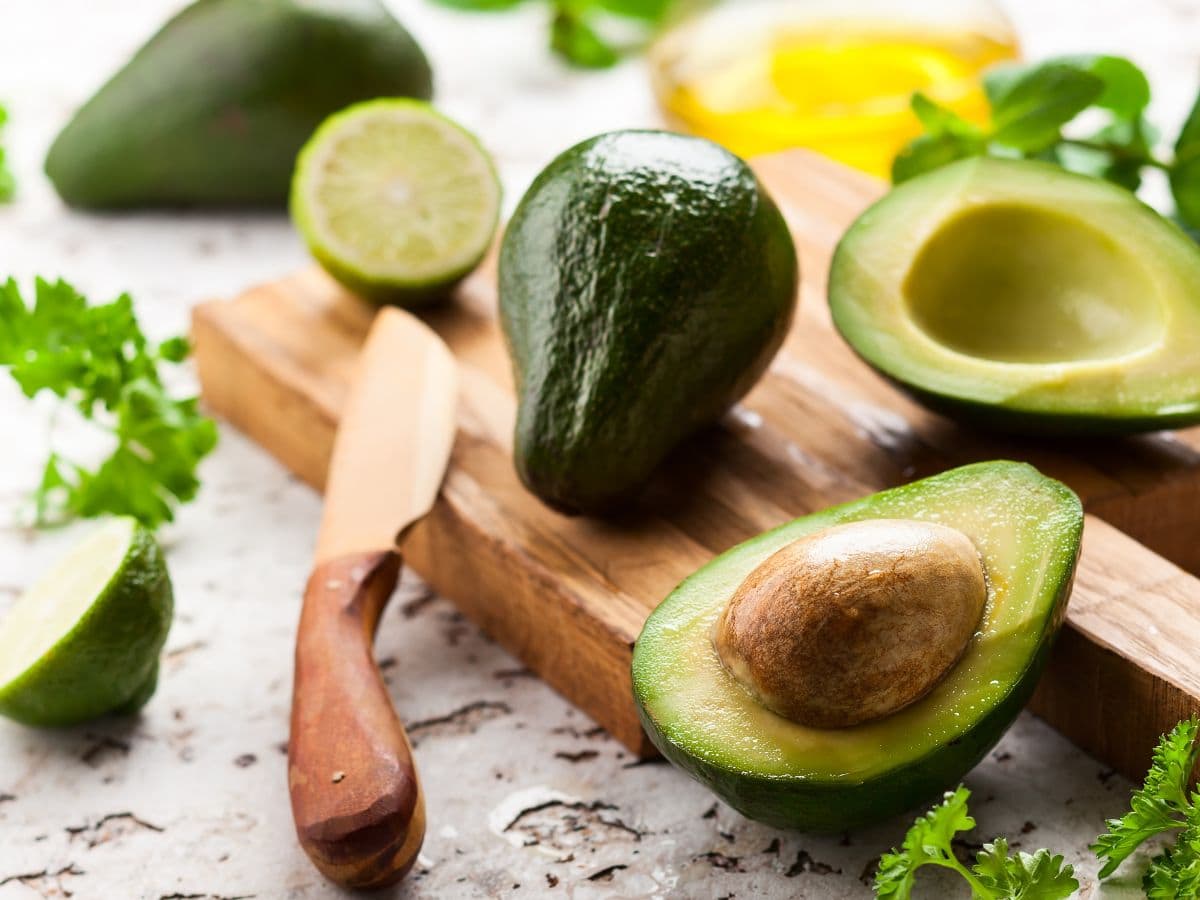
Avocado can be used as a greek yogurt substitute in a 1:1 ratio.
Pros:
- Avocado has a creamy texture similar to greek yogurt.
- It adds healthy fats and fiber to your recipe.
- It's a great option for those who are lactose intolerant or vegan.
- It can add a unique flavor and texture to your recipe.
Considerations:
- It's best used as a greek yogurt replacement in smoothies, dressings and dips.
- Some people may not enjoy the taste of avocado in their recipes, so it's important to experiment and find the right proportions and flavors that work for you.
5. Almond milk yogurt
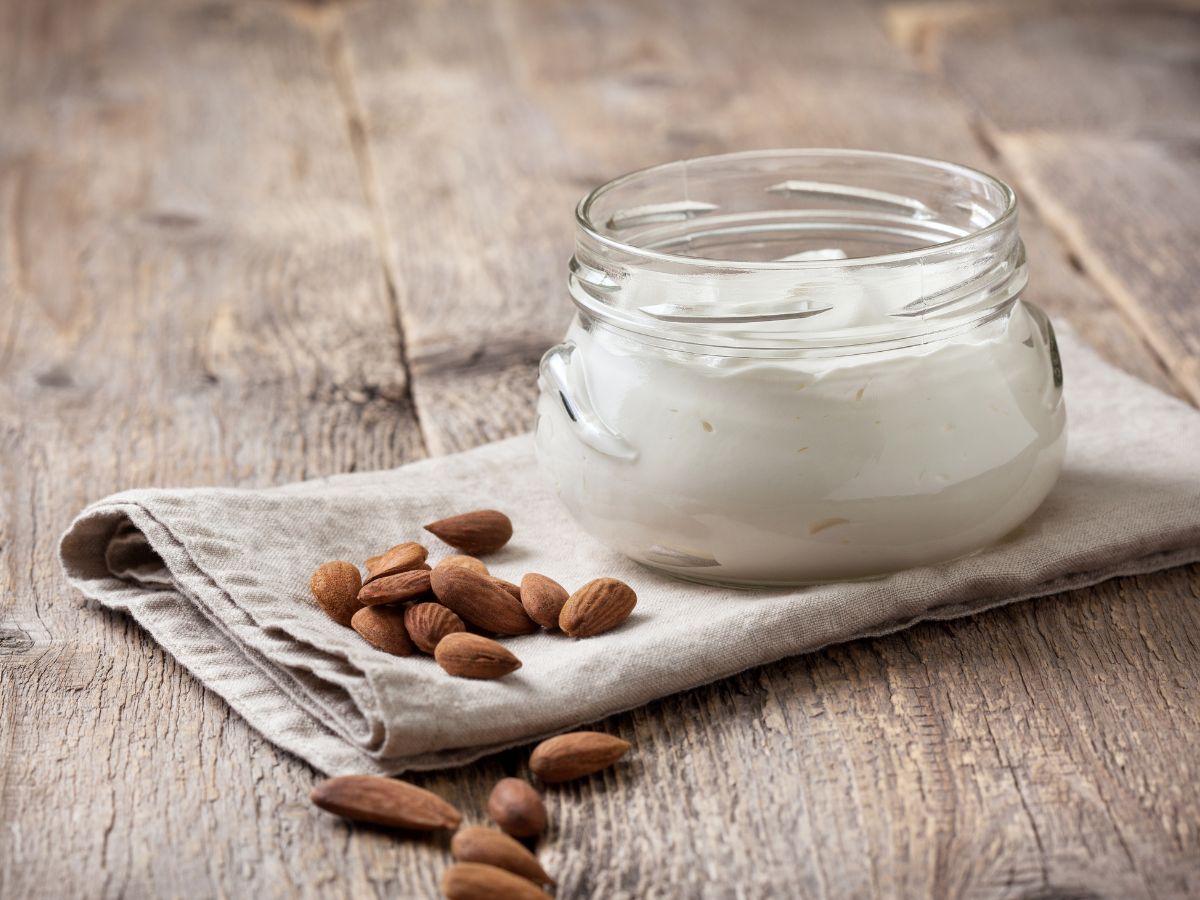
Almond milk yogurt can be used as an alternative for yogurt in a 1:1 ratio.
Pros:
- Almond milk yogurt has a similar texture to Greek yogurt and is a great option for those who are lactose intolerant or vegan.
- It's lower in calories than Greek yogurt.
- It's a good source of calcium and vitamin E.
Cons:
- It's best used as a greek yogurt substitute in baking, smoothies, dips and dressings.
- Some almond milk yogurts can be high in added sugars, so make sure to choose a brand that is unsweetened or low in sugar if possible.
6. Soy Yogurt
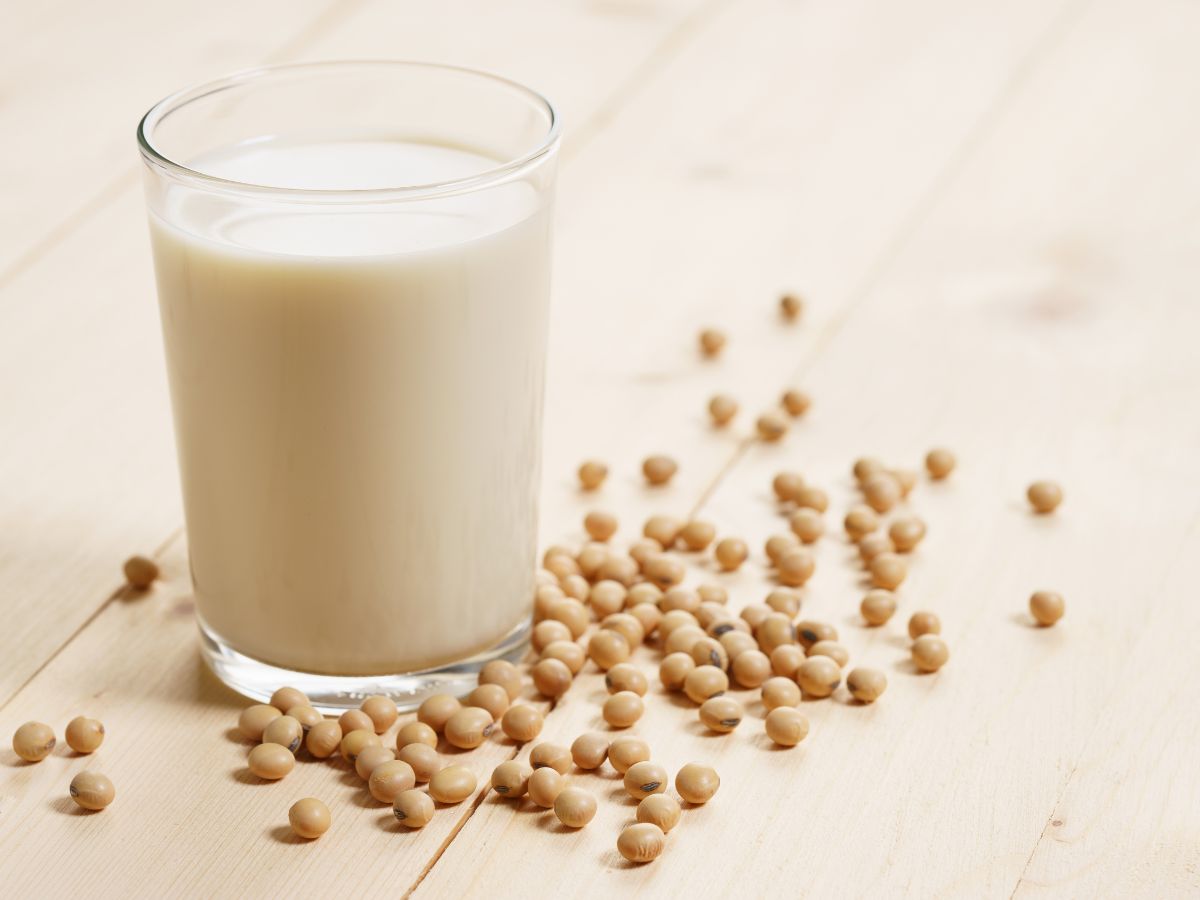
Soy yogurt can be used as a substitute for greek yogurt in a 1:1 ratio.
Pros:
- Soy yogurt can be used as a substitute for Greek yogurt in recipes that require a tangy flavor and a high protein content.
- Soy yogurt is not only a good source of protein, but also contains healthy fats.
Considerations:
- It's best used as a greek yogurt alternative in baking, smoothies, dips and dressings.
- Soy yogurt may have a different texture and consistency compared to Greek yogurt, so it may not work as well in recipes that require a thick and creamy consistency.
7. Coconut cream

Coconut cream can be used a greek yogurt substitute in a 1:1 ratio.
Pros:
- Coconut cream has a rich and creamy texture, which makes it a great substitute for Greek yogurt in recipes that require a thick and creamy consistency.
- It has a slightly sweet flavor that works well in recipes that require a tropical twist.
Considerations:
- It's best used as a greek yogurt alternative in baking, smoothies, dips, and dressings.
- Coconut cream is high in calories and saturated fat, so it should be consumed in moderation.
- It may not work as well in recipes that require a tangy flavor, as it has a sweeter taste than Greek yogurt.
Caitey Jay's top pick:
 Buy Now →
Buy Now → 8. Sour cream

Sour cream can be used a greek yogurt alternative in a 1:1 ratio.
Pros:
- Sour cream has a tangy flavor that works well in recipes that require a sour taste.
- It has a similar texture and consistency to Greek yogurt, making it a great substitute in recipes that require a thick and creamy texture.
Considerations:
- It's best used as a greek yogurt sub in baking, dips, and dressings.
- Sour cream is high in calories and saturated fat, so it should be consumed in moderation.
- It may not work as well in recipes that require a neutral flavor, as it has a distinct taste.
9. Cottage cheese
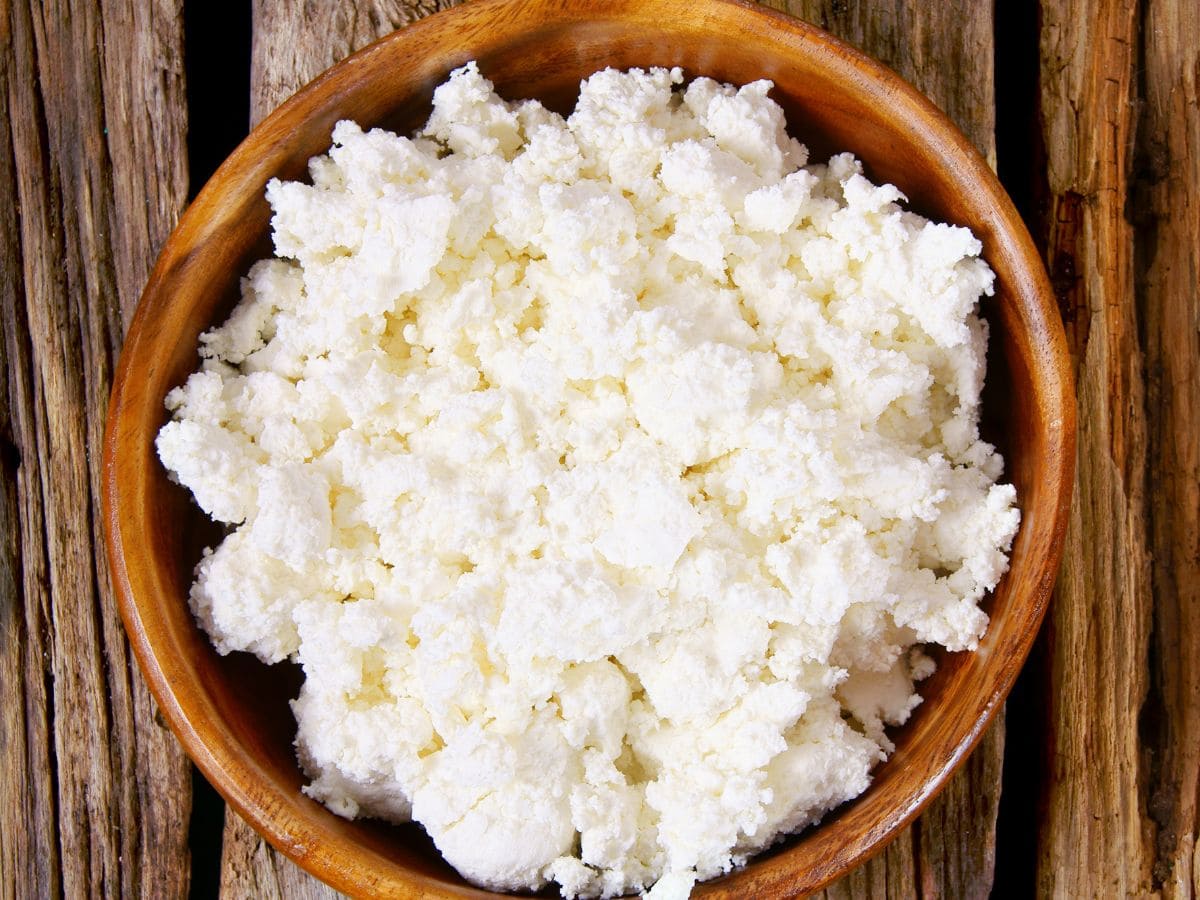
Cottage cheese can be used instead of greek yogurt in a 1:1 ratio.
Pros:
- Cottage cheese is a great source of protein, making it a nutritious addition to any recipe.
- It has a creamy texture that works well in recipes that require a thick and creamy consistency.
Considerations:
- It's best used as a greek yogurt alternative in smoothies, dips, and dressings.
- Cottage cheese has a distinct taste that may not work in all recipes.
- It may not work as well in recipes that require a tangy flavor, as it has a milder taste compared to Greek yogurt.
10. Mayonnaise

Mayonnaise can be used a greek yogurt sub in a 1:1 ratio.
Pros:
- Mayonnaise adds a creamy texture and tangy flavor to dips and dressings.
- It is widely available and has a long shelf life.
Considerations:
- It's best used as a greek yogurt replacement in dips and dressings.
- Mayonnaise is high in calories and fat, so it may not be suitable for those on a low-fat or low-calorie diet.
- It may not be suitable for vegans or those with egg allergies.
11. Plain yogurt

Plain yogurt can be used a greek yogurt alternative in a 1:1 ratio.
Pros:
- Plain yogurt has a similar tangy flavor and creamy consistency as Greek yogurt.
- It is widely available.
Considerations:
- It's best used as a greek yogurt alternative in baking, smoothies, dips, and dressings.
- Plain yogurt may have a slightly different texture and consistency compared to Greek yogurt, so it may not work as well in recipes that require a thick and creamy consistency.
- It may not be suitable for those with dairy allergies or sensitivities.
12. Buttermilk

Buttermilk can be used a greek yogurt alternative in a 1:1 ratio.
Pros:
- Buttermilk has a tangy flavor and acidic content, similar to Greek yogurt. It works well in recipes that require a sour taste.
Considerations:
- It's best used as a greek yogurt replacement in baking and dressings.
- Buttermilk may have a different texture and consistency compared to Greek yogurt, so it may not work as well in recipes that require a thick and creamy consistency.
- It may not be suitable for those with dairy allergies or sensitivities.
13. Mashed banana
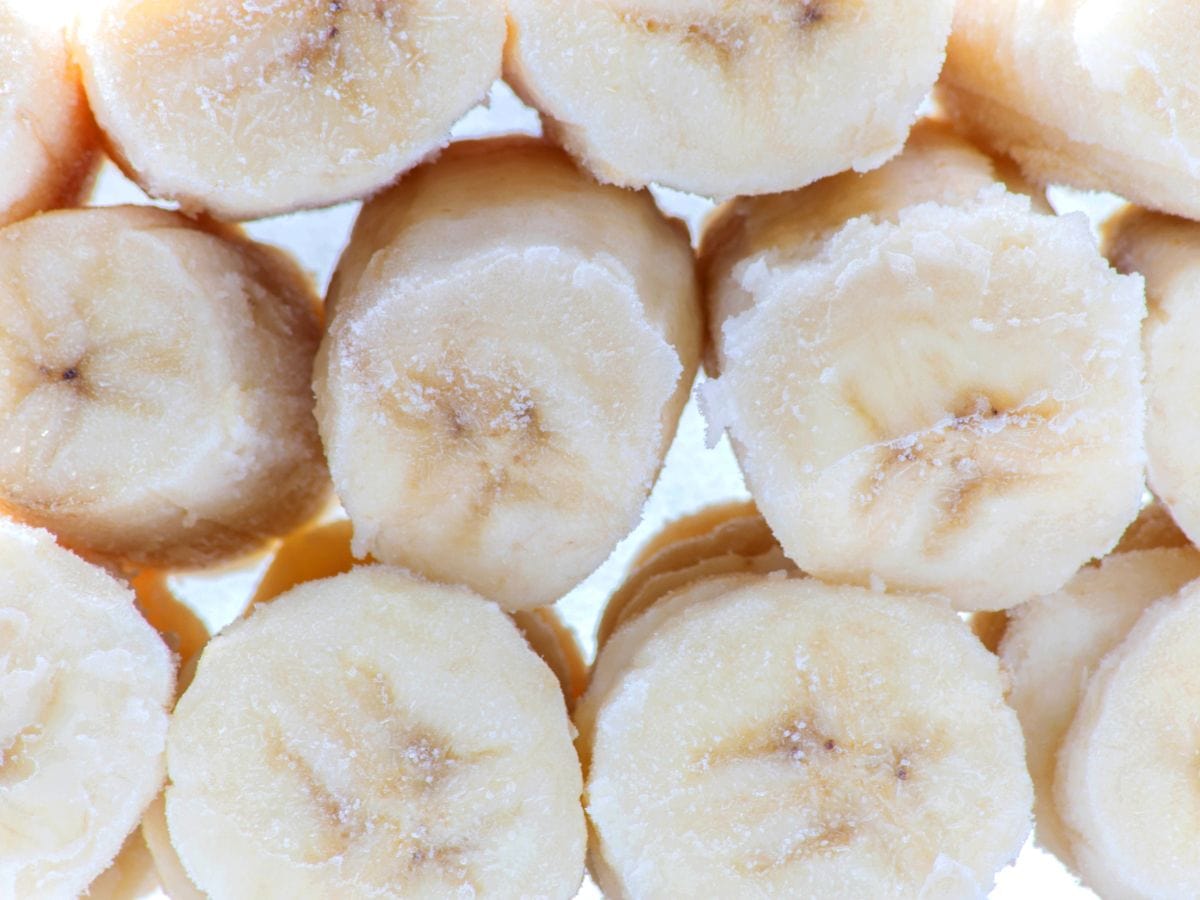
Mashed bananas can be used as a substitute for greek yogurt in a 1:1 ratio.
Pros:
- Mashed bananas can be used as a substitute for Greek yogurt in recipes that require a sweet flavor and moist texture.
- They are widely available and easy to prepare.
Considerations:
- It's best used as a greek yogurt sub in baking and smoothies.
- Mashed bananas may not work as well in recipes that require a tangy flavor or a high protein content.
14. Cream cheese
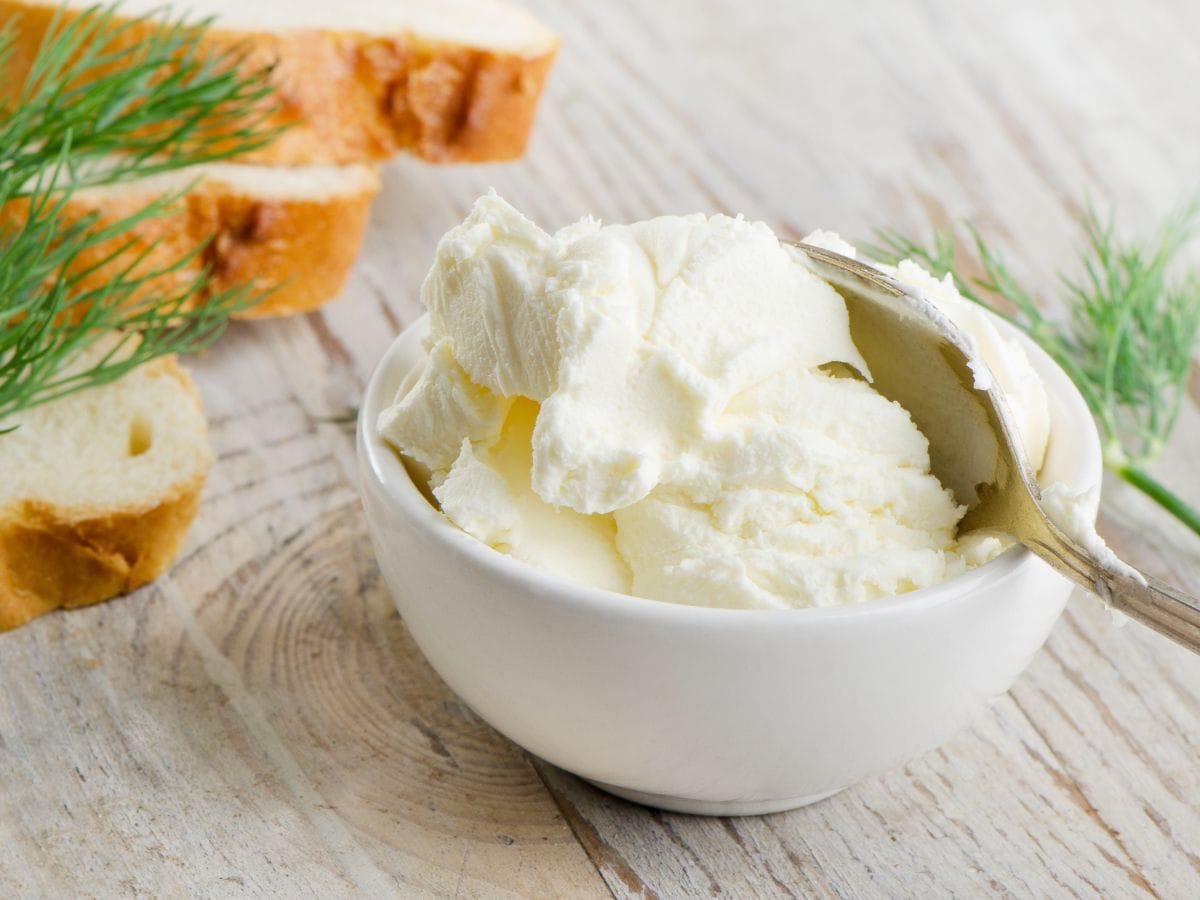
Cream cheese can be used a greek yogurt substitute in a 1:1 ratio.
Pros:
- Cream cheese adds a creamy and tangy flavor to recipes, similar to Greek yogurt.
- It has a smooth texture that can add richness and moisture to baked goods and dips.
- Cream cheese is a good source of protein and fat, making it a satisfying and filling ingredient in breakfast bowls and other recipes.
Considerations:
- It's best used as a substitute for greek yogurt in baking and dips.
- Cream cheese is higher in calories and fat than Greek yogurt, so it should be used in moderation.
- It has a stronger flavor than Greek yogurt, so it may not be suitable for all recipes.
- It may not be a suitable substitute for people who are lactose intolerant or have dairy allergies
15. Applesauce

Applesauce can be used a greek yogurt replacement in a 1:1 ratio.
Pros:
- Applesauce can add moisture and sweetness to baked goods, similar to Greek yogurt.
- It is a lower fat and calorie alternative to Greek yogurt.
- Applesauce is a good source of fiber and antioxidants, making it a healthy addition to your baked goods.
Considerations:
- It's best used as an alternative for greek yogurt in baking.
- Using applesauce may alter the texture and taste of your baked goods, so it is best used in recipes where its flavor and moisture won't be overpowering, like in muffins, cakes, and quick breads.
- You may need to adjust the amount of sugar or other sweeteners in the recipe if using unsweetened applesauce.
Summary
There are a number of reasons you might be looking for substitutes for greek yogurt. From food intolerances to lack of availability to taste presences.
These are the best substitutes for greek yogurt:
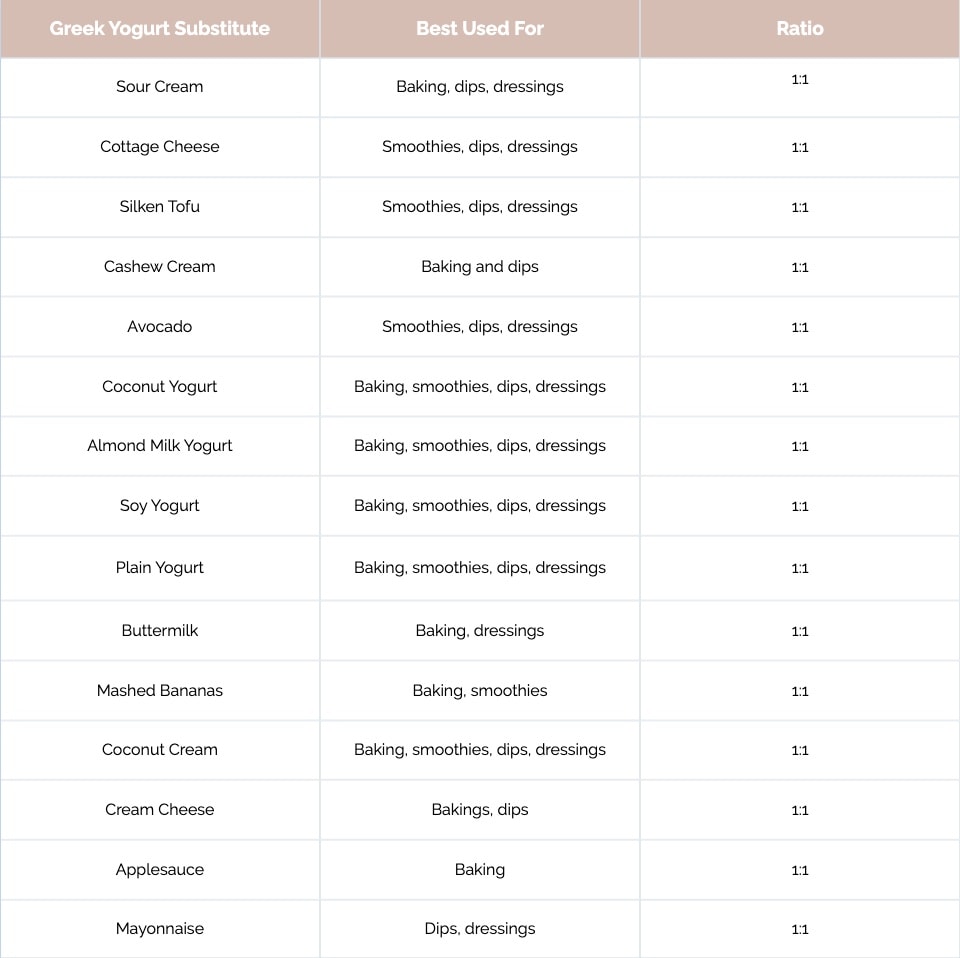
Can I use milk instead of greek yogurt?
Milk can work as a substitute for Greek yogurt in some recipes, but it's important to consider its properties and how they can affect the outcome. While milk can add a creamy texture and a mild flavor, it may not offer the tanginess or protein content of Greek yogurt that you may be looking for.
If you want to use milk instead of Greek yogurt, you might need to adjust the recipe to balance the additional liquid and make up for the lack of thickness and acidity. For example, you could reduce the amount of milk and add a thickener like cornstarch or a flavor booster like lemon juice or vinegar. You may also need to experiment with different recipes and ratios to find the best substitute for your needs.
It's worth noting that milk may not work well in recipes that rely on Greek yogurt for its unique properties, such as dips, dressings, and some baked goods. In these cases, you may be better off using a more suitable substitute, such as the ones listed above.
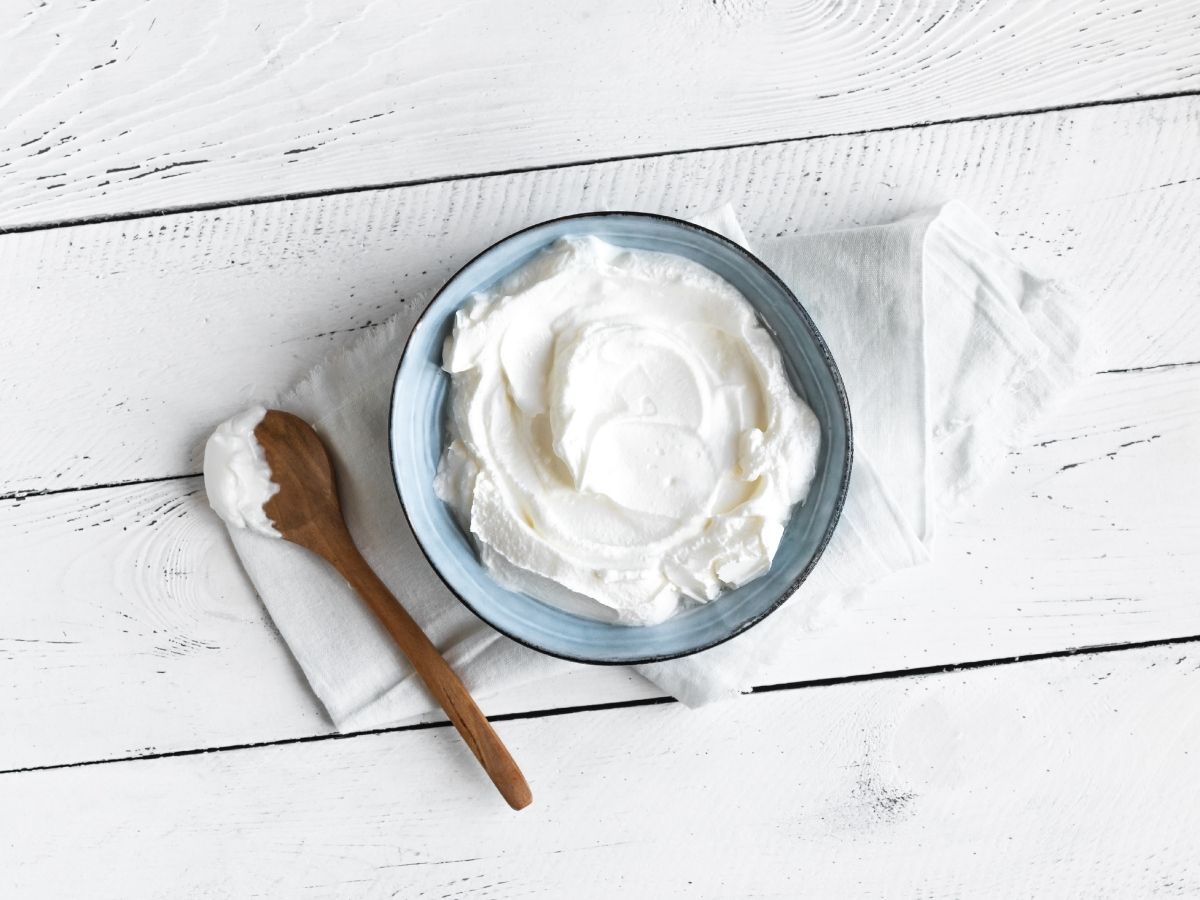
How to use Greek yogurt?
I’ll share some of my favourite recipes using greek yogurt below. But, to make you the master of your own kitchen, I want to share a few ideas on how you can start using greek yogurt.
- In smoothies. Yogurt is a popular ingredient in smoothies because it adds a creamy texture and boost of protein and healthy fats. If you're looking for a sub for greek yogurt specifically in smoothies, check out this article.
- In baking. From cake to brownies to puddings to granola. Yogurt can add moisture, fat and flavour to your favourite baked goodies (like my pumpkin spice protein muffins or protein mousse!).
- In bowls. Check out my post on how to elevate your bowls with healthy yogurt toppings.
- In dips and dressings. Basically any mayonnaise based dip or dressing can be made a little healthier with the substitution of greek yogurt.
Similar articles
If you share my love for yogurt and want to learn more, check out some of my other articles below.
Have you tried any of these substitutes for greek yogurt? Do you have any of your own? Please take a minute to leave a comment below with your suggestions.




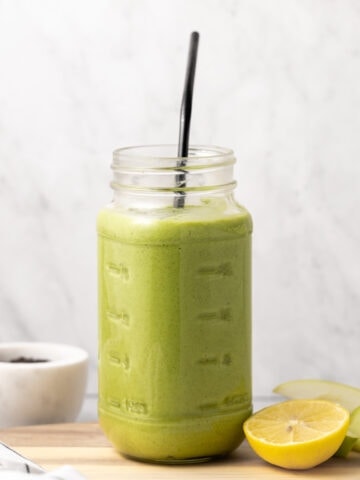


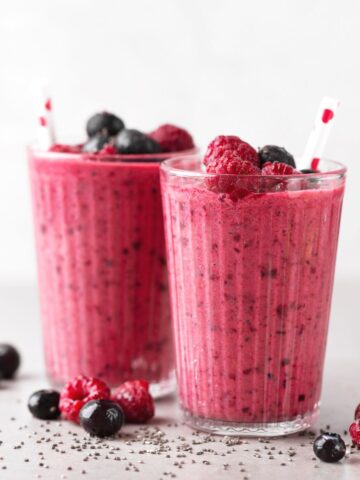

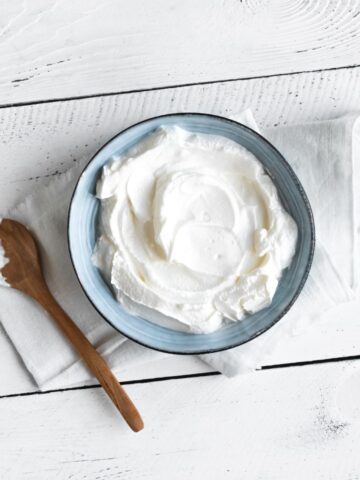
Leave a comment!